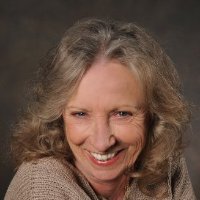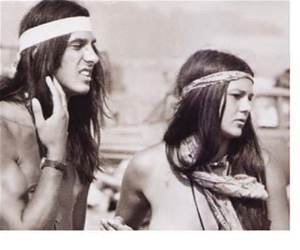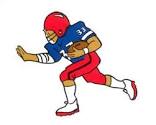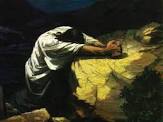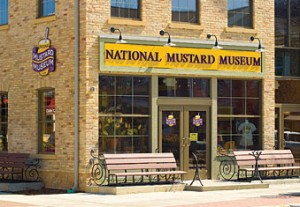I learned how to spell and pronounce Sonephet Vongprasearth’s name while opening a bank account where she was helping me bridge the gap for my daughter’s banking while she was away at school. Sonephet is from Laos, but she grew up in the Midwest, and has lived here for almost 25 years.
My first question for her: Is there a Laotian restaurant in Rockford, Ill.? She affirmed. And, always important: “Do you eat there?”
“Yeah, uh-huh, they’re family owned,” she replied. But she chose Thai for our lunch, because it was close to the bank.
“Do you eat Asian cuisine at home?” I asked.
“Not every day, but whenever I can.”
She likes fried noodles, and let me know that Laotian food is mostly stir fry and soups.
“Are you into organic food?” I asked.
“I know what it is, but don’t know what is organic.”
I proceeded to educate this petite, young woman, who can probably eat fried foods with no repercussions. Life isn’t fair. She gets the beautiful skin, hair and propensity to thinness. But she ordered a roasted chicken sandwich with American cheese.
“Do you relate to women who are always thinking about weight?”
“I don’t really have that problem. In Laos, they’re really active. They have to be. They walk all the time, because they’re poor and don’t have cars. You’re lucky if you have a bicycle.”
“You’re naturally thin. How tall are you?” She giggles, “I’m five feet.”
She goes on to describe one of her favorite foods–Laotian barbecue, oyster sauce, fish, sauce, MSG, and Hoisin.” 
“Do you remember coming to America?”
“We started on a boat. Then flew here on an airplane.”
“Were you refugees?”
“The whole thing started because we had to escape from the Communists. My dad was a mayor in Laos. He didn’t like what they were telling him to do, so he left, and didn’t tell anybody.
My mom didn’t know. The Communists came to our house and asked, ‘Where is your husband?’ I was about five years old then. My father escaped and finally my mo got into contact with him. Somehow we met in Thailand, across the water. My father had a friend, maybe his best friend. We had to kind of escape too, so the Communists wouldn’t know where we were going. We crossed in the middle of the night, probably about an hour–it wasn’t too far. We got on a boat, and my mom’s friends made us kind of jump, almost half way, because they didn’t want to get caught also. 
My mom begged them, ‘Please, I’ll swim and the two boys will swim, but the three girls, you have to get them to shore. Others were there too. They had to jump.”
Her brown eyes widened as she continued: “My mom, this is a really good story, had to actually save a pregnant woman because she was jumping and drowning. My mom got her and brought her back.”
“Scary stuff,” I said.
“Oh yeah. You had no choice. Either you do it, or you die.”
We drew a map of Southeast Asia on our napkins. “My father was working with an American when he was a mayor. Your weren’t allowed to associate with any if you’re a Communist. I don’t know what happened, but he felt endangered.”
The family landed in California and then went to Brookfield, Wis.
“Our sponsors were a group of nuns who took us in. They had a huge mansion, a convent.” We paused when our food arrived. But, I wanted more about these sponsors, nuns.
“Were you Catholic?”
“I was going to be. I went to a private Catholic school until high school. But at baptizing time, I asked the nun and she said ‘No, you need to find your way, find what you are going to do in life.’’’
“And, now?” “I believe that there is one God, a universal God. The difference is the language barrier. It’s how everyone explains it. 
I go to a Buddhist temple, but only to special events. People have to follow those rules. I don’t think it’s necessary.” She paused. “Americans take a lot of things (for granted).
I went back to Laos in 1996. There’s so much going on. I’m very fortunate from my parents…for them bringing me here, letting me learn the American culture, and my own. I feel very lucky. We have both lives. We go back to Laos and see this whole different culture. Then coming back to America, it’s just like, Wow!”
(This story was first published in The Rock River Times, in April and May in 2005)






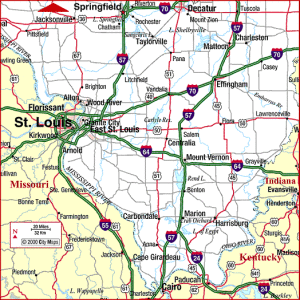




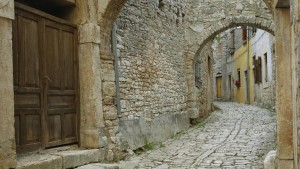
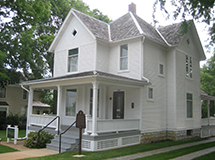
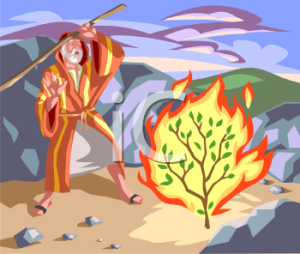



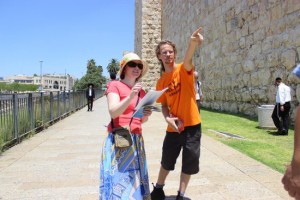




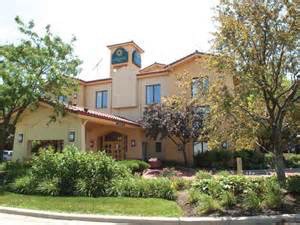
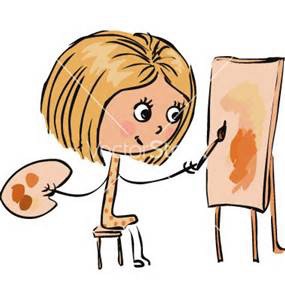
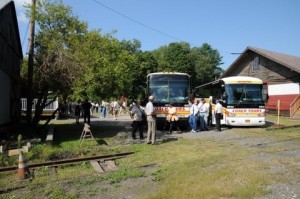
 Door County fish boils in season. You narrate, take care of the seniors, make sure their needs are met, and tell jokes. You probably can’t picture yourself standing up for an hour and telling jokes,” she said.
Door County fish boils in season. You narrate, take care of the seniors, make sure their needs are met, and tell jokes. You probably can’t picture yourself standing up for an hour and telling jokes,” she said. “The bus was totaled. What I remember is I always took my shoes off traveling on the bus. It was a long travel day.
“The bus was totaled. What I remember is I always took my shoes off traveling on the bus. It was a long travel day.

